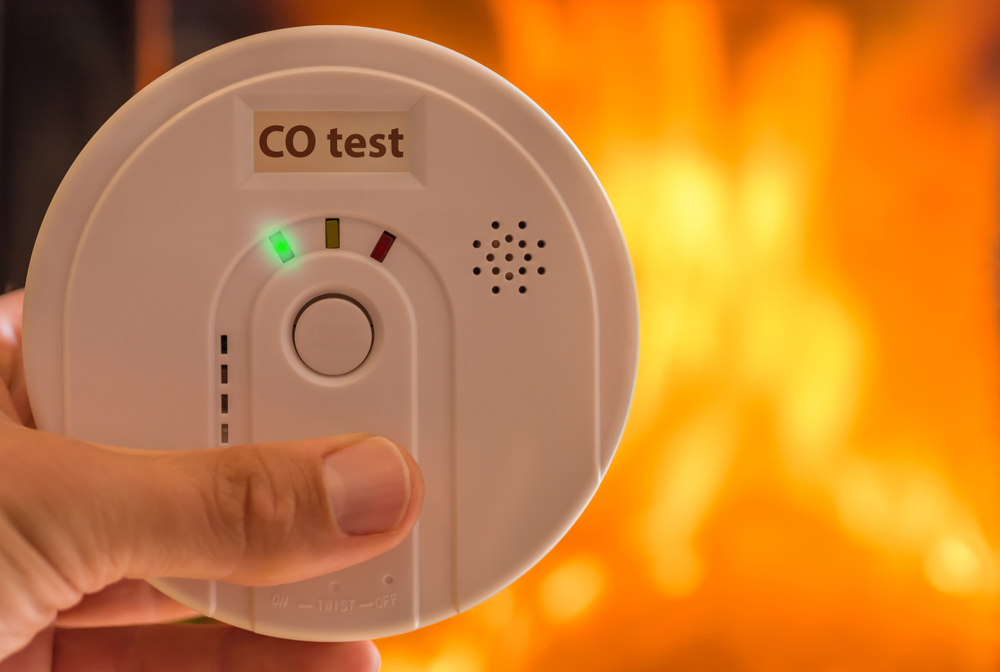July 14, 2022 | Risk Mitigation
4 Hazard Safety Tips to Keep Your Property Damage-Free
When it comes to owning a home or business, there are plenty of potential hazards that can put your property at risk. From severe weather to accidents, the potential of damage to your property can lurk anywhere. To help protect your investment, here are four hazard safety tips for keeping your property damage-free. When it comes to owning a home or business, there are plenty of potential hazards that can put your property at risk. From severe weather to accidents, the potential of damage to your property can lurk anywhere. To help protect your investment, here are four hazard safety tips for keeping your property damage-free.
Unclog Gutters
One potential hazard to your property is clogged rain gutters and downspouts. Stagnant water above your roofline can cause leaks, rust, wet foundation or iced walkways. There’s also an increased risk of mold growth which could lead to health problems and remediation costs. Your sidewalks and driveways aren’t safe from the dangers of a clogged gutter either. Similar to the foundation being damaged, the concrete sidewalks and driveways may become cracked and shift.
Check your gutters regularly, especially in the fall when fallen leaves create potential clogs. A safe way to remove leaves from your gutter is to use a hose nozzle on the attachment with its pressure set high enough to fill the gutter up to the top but not blow any debris across your property or towards you.
Follow Local Fire Codes
Keep your property and inhabitants safe from potential fire hazards by following local fire codes and ordinances. This will also help to ensure you do not violate your insurance policy terms in the event of fire damage. Inspect smoke alarms and sprinklers regularly to ensure they are functioning properly and replace them as necessary. Never block them with anything that can impede their ability to function properly. Inspect wiring, equipment and appliances regularly to ensure they are operating correctly. Clogged chimneys and fireplaces are also common sources of property fires that should be inspected regularly.
Choose a security system for your home or business that has an extra layer of protection to your property with fire alarms, heat detection and sprinklers to provide peace of mind and 24/7 monitoring. These products help protect individuals who may be in the building during a fire or those who are unaware there is a fire hazard present in their near vicinity.
Install a Carbon Monoxide Detector
Carbon monoxide poisoning is a high risk for property owners. Low exposure to carbon monoxide can cause many different health issues including headaches and dizziness. Exposure to high levels of carbon monoxide can cause greater health risks and even death. Carbon monoxide is a colorless and odorless gas that is produced when material burns. Properties that have fuel-burning appliances or attached garages face a higher risk for carbon monoxide, including:
• Water heaters
• Furnaces
• Gas stoves
• Wood stoves
• Power tools
• Dryers
• Motor vehicles
• Generators
Carbon monoxide is a serious and silent threat, since it’s almost impossible to smell or see. Keep yourself, your loved ones and your employees safe by installing a carbon monoxide detector that alerts you if carbon monoxide reaches dangerous levels.

Promote Safe Garbage Collection
Garbage collection areas can pose a dangerous hazard to any property. Make sure your dumpsters and all other trash collection zones are at a safe distance from your property. If you own a commercial property such as an apartment complex, keep up with trash collections to avoid any potential hazardous trash buildups. Recycling services should also be provided or used to help keep pollution down, and to help save on hazardous waste costs. You should keep a sign posted in the collection zone or near your trash can that reminds anyone living on or using the property of materials that require special disposal, including flammable liquids, batteries, oily rags, paint thinners, ammonia and gas containers. Placing these items in the regular garbage can pose a serious threat if any of the items combusts and sparks a fire.
Using the hazard-safety tips above can ensure you keep your property and everyone in it safe and prevent costly damage.
